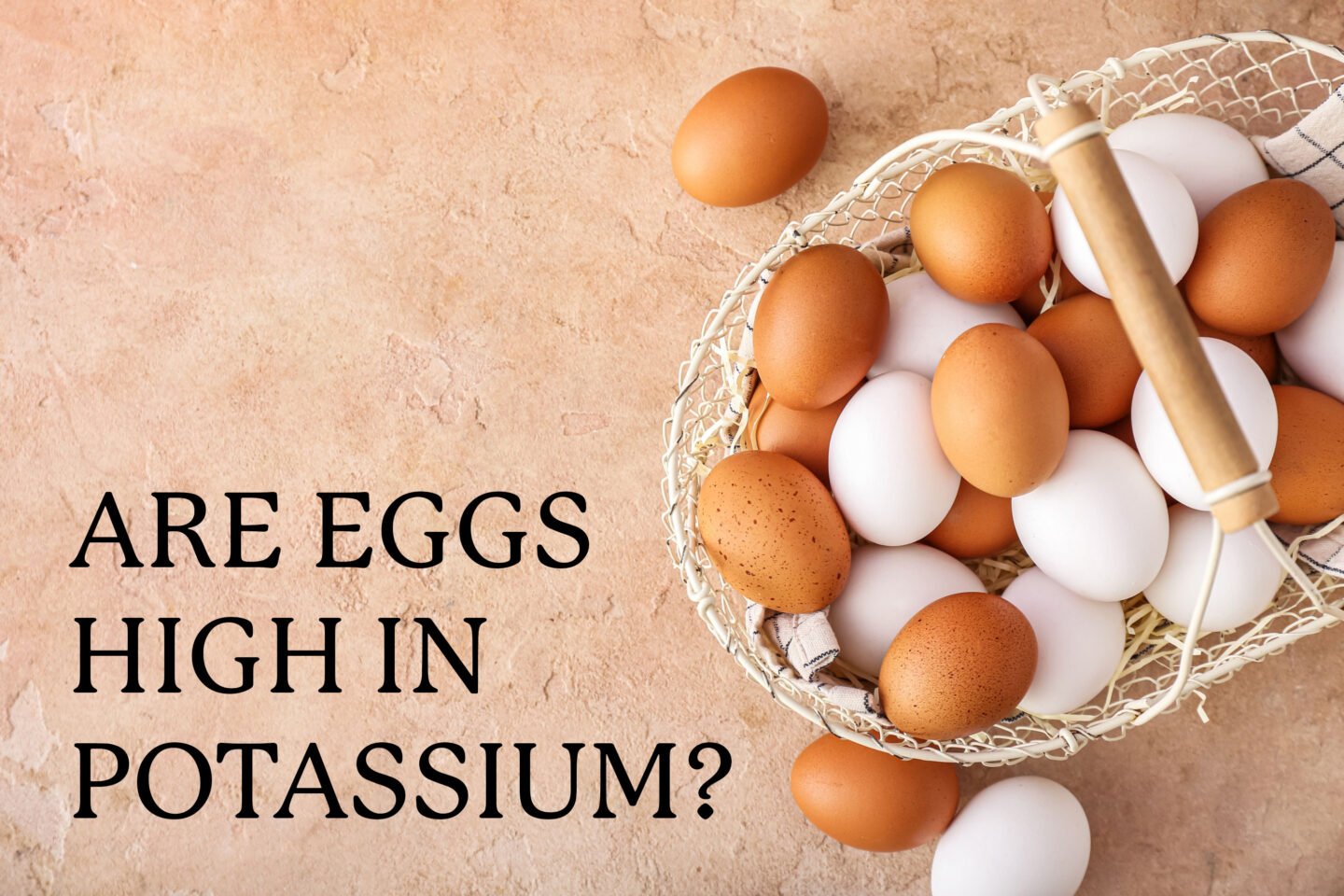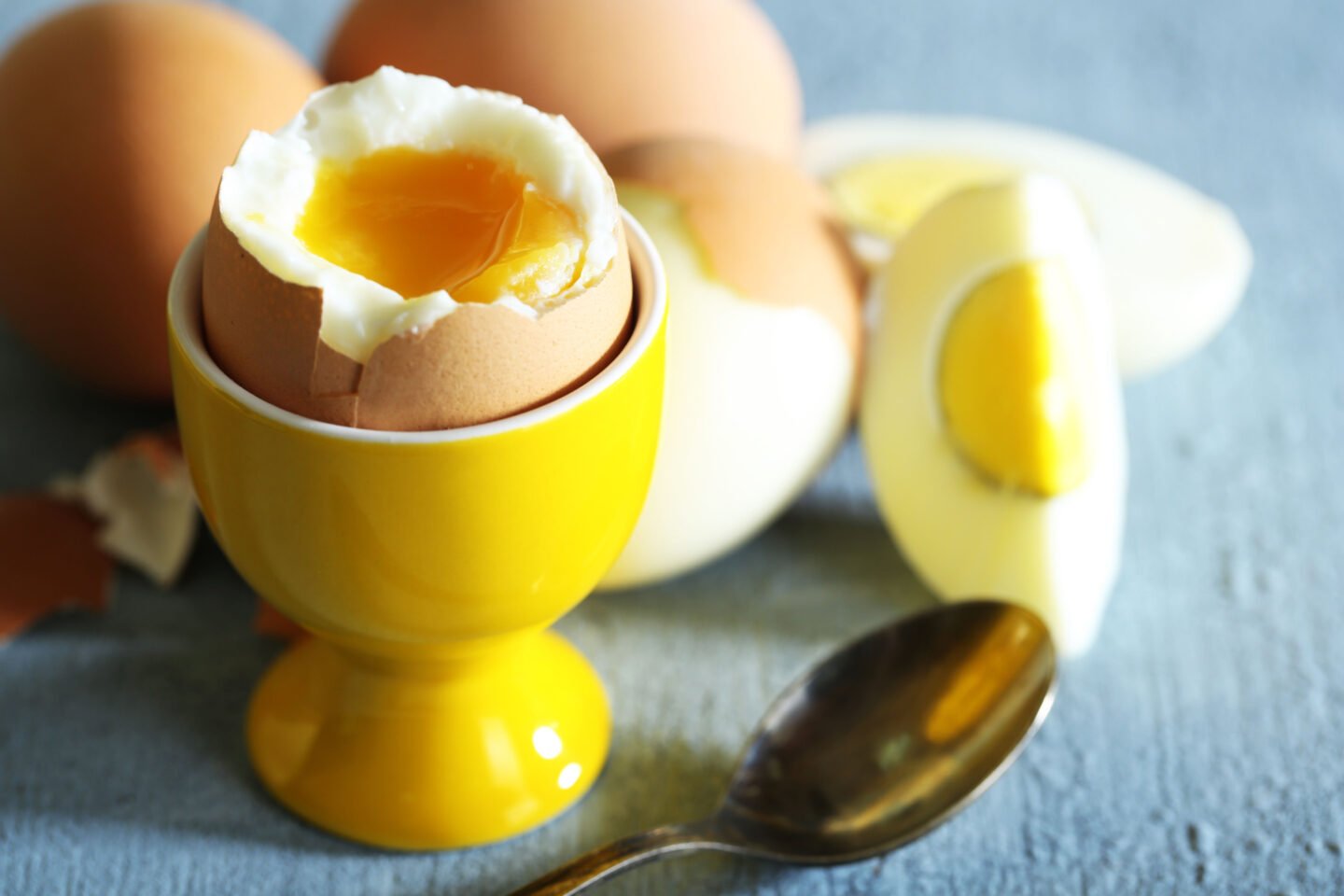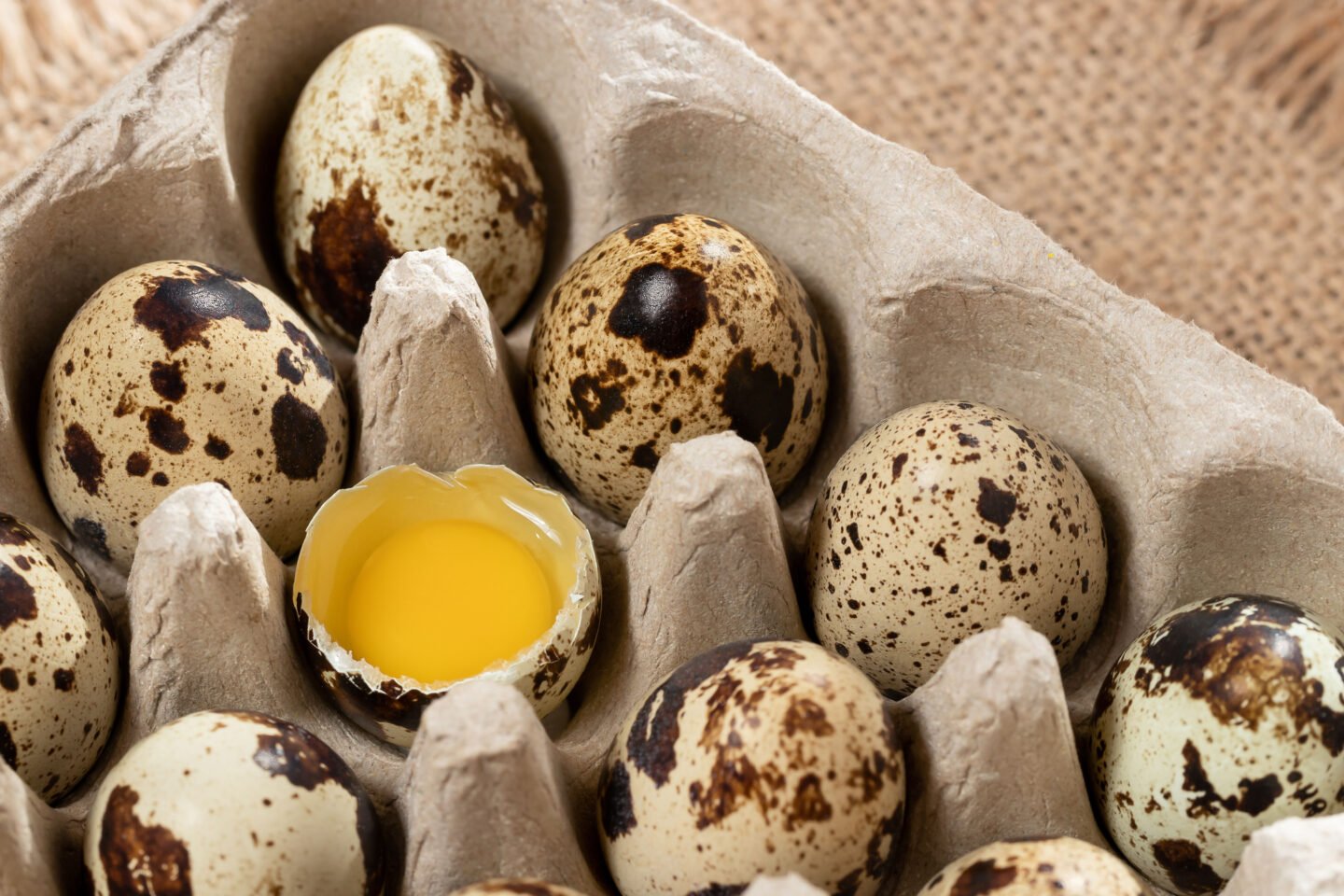Eggs are a delicious, healthy protein source that's popular worldwide. They're usually inexpensive, easy to produce, and very versatile in the kitchen. They're delicious on their own, however you cook them, and can add flavor and nutrition to a variety of hot and cold dishes.

However, many people follow diets aimed at increasing or decreasing their intake of certain nutrients, such as the low-potassium diet followed by those with kidney disease. These people must know the potassium content of common foods and ensure they stay within the daily intake recommended by their doctor.
How well do eggs fit into the meal plans of people on such a diet?
Table of Contents
Are Eggs High or Low in Potassium?
Eggs are low in potassium, so they're a great addition to a kidney-friendly diet. They’re also incredibly nutritious, an excellent protein source, and relatively low in calories.
How Much Potassium Is in Eggs?
One hard-boiled egg contains around 63mg of potassium, significantly less than the 200mg per serving threshold for low-potassium foods.
However, the potassium content can vary with the cooking method, with scrambled eggs containing more than poached or soft-boiled.
Are Eggs Healthy?
Eggs are very good for you; they're an excellent source of protein, which builds lean muscle, prevents fatigue, and keeps energy levels high. It also keeps you feeling full longer after eating, assisting in healthy weight loss.
They also contain choline, which aids cell membrane formation and helps prevent liver, neurological, and heart disorders. It's essential pregnant women get enough choline, as too little may impair the child's cognitive function.

Eggs contain amino acids that are responsible for building proteins. Your body doesn't produce these acids, so getting enough in your diet is essential.
Although many believe eggs cause cardiovascular issues with their high cholesterol content, studies show that they raise good cholesterol levels, which doesn't negatively impact your heart.
Eggs contain an antioxidant, lutein, that keeps your eyes healthy. It’s found mainly in the yolk and accumulates in the retina, protecting your eyes from sunlight, macular degeneration, and cataracts.
Can You Get Too Much Potassium from Eggs?
It would be almost impossible to get too much potassium from eating eggs.
However, they do contain some, particularly in the white. So, if you're on a low-potassium diet, make sure you stay within the daily intake recommended by your doctor.
Are Scrambled Eggs High in Potassium?
A half-cup serving of scrambled eggs contains around 152mg of potassium, less than the low-potassium food threshold.
Which Eggs Are Lowest in Potassium?
Chicken eggs are the lowest in potassium, containing around 63mg per egg compared to a similarly sized duck egg with 146mg.
One quail egg contains around 12mg of potassium, as they're much smaller.

Eggs are low in potassium but rich in other nutrients, making them an excellent addition to a low-potassium, kidney-friendly diet.
Don't know which foods are high in potassium? Read our article, 15 Best Food Sources of Potassium. We also have a guide to this important mineral: Potassium 101: All You Need To Know About Potassium.
